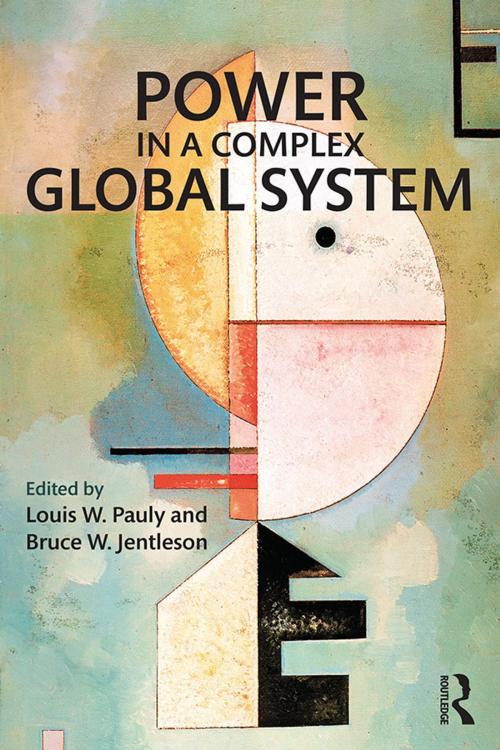Power in a Complex Global System
Nonfiction, Social & Cultural Studies, Political Science, Government, Political Parties, Civics| Author: | ISBN: | 9781317812685 | |
| Publisher: | Taylor and Francis | Publication: | May 9, 2014 |
| Imprint: | Routledge | Language: | English |
| Author: | |
| ISBN: | 9781317812685 |
| Publisher: | Taylor and Francis |
| Publication: | May 9, 2014 |
| Imprint: | Routledge |
| Language: | English |
Can twenty-first century global challenges be met through the limited adaptation of existing political institutions and prevailing systemic norms, or is a more fundamental reconstitution of governing authority unavoidable? Are the stresses evident in domestic social compacts capable of undermining the fundamental policy capacity of contemporary governments? This book, inspired by the work of the distinguished scholar Peter J. Katzenstein, examines these important and pressing questions.
In a period of complex political transition, the authors combine original research and intensive dialogue to build on Katzenstein’s innovative insights. They highlight his seminal work on variations in domestic structures, on the role of ideologies of social partnership, on the regionally differentiated foundations of political legitimation, on diverse conceptions of "civilization," and on the idea and practice of power in a tenuous American imperium. Together, the chapters map the complex terrain upon which legitimate political authority and effective policy capacity will have to be reconstituted to address twenty-first-century global, regional and state-level challenges.
The book will be of great interest to students and scholars in international organization, global governance, foreign policy analysis, and comparative politics.
Can twenty-first century global challenges be met through the limited adaptation of existing political institutions and prevailing systemic norms, or is a more fundamental reconstitution of governing authority unavoidable? Are the stresses evident in domestic social compacts capable of undermining the fundamental policy capacity of contemporary governments? This book, inspired by the work of the distinguished scholar Peter J. Katzenstein, examines these important and pressing questions.
In a period of complex political transition, the authors combine original research and intensive dialogue to build on Katzenstein’s innovative insights. They highlight his seminal work on variations in domestic structures, on the role of ideologies of social partnership, on the regionally differentiated foundations of political legitimation, on diverse conceptions of "civilization," and on the idea and practice of power in a tenuous American imperium. Together, the chapters map the complex terrain upon which legitimate political authority and effective policy capacity will have to be reconstituted to address twenty-first-century global, regional and state-level challenges.
The book will be of great interest to students and scholars in international organization, global governance, foreign policy analysis, and comparative politics.















